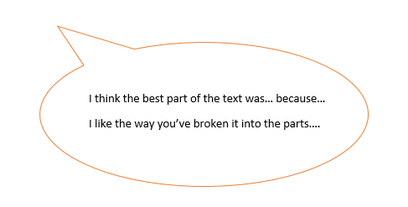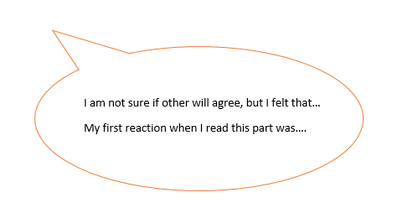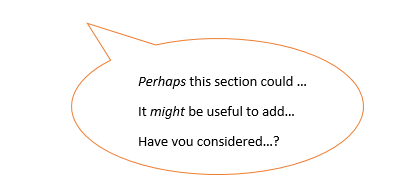Giving feedback:
Even though you are not a professional editor, you can give feedback on many aspects, such as:
One of the biggest favors you can do for the writer is to identify the 'sticking points' (i.e. points at which the writing seems not to communicate information clearly or when the writer’s meaning is lost), and suggestions on how to re-work them.
- Whether you think the ideas are flowing logically...
- Whether the argument seems strong or whether it could be improved...
- Whether the text is easy to read/follow....
- Whether the formatting looks right (e.g. structure, citations, etc.)...
One of the biggest favors you can do for the writer is to identify the 'sticking points' (i.e. points at which the writing seems not to communicate information clearly or when the writer’s meaning is lost), and suggestions on how to re-work them.
Advice on delivering feedback:
- Start your feedback with something positive about the text:
- Acknowledge that your comments are your own opinion. Invite others to disagree with you.
- To point out a “sticking point” in the text, or to make a suggestion, use indirect language.
- Be as specific as you can. General statements such as “This section is really unclear” are not very helpful if there are no other further explanations.
- Don’t hog the floor. Focus on 2-3 main points (illustrating with examples from the text), and provide other comments using Track Changes for the writer to read later.
- Allow the writer to digest and if necessary respond to each suggestion before delivering the next point. Do not force the writer to agree with or follow all of your advice.
It's good to remember that constructive feedback is not:
A chance for you to:
A chance for you to:
- Fix (copyedit or proofread) the text
- Judge the skills of the writer/ researcher
- Judge the value of the research
- Assume the role of a superior, infallible authority over the writer
Is it your turn to submit writing? You might find some of these tips useful.



